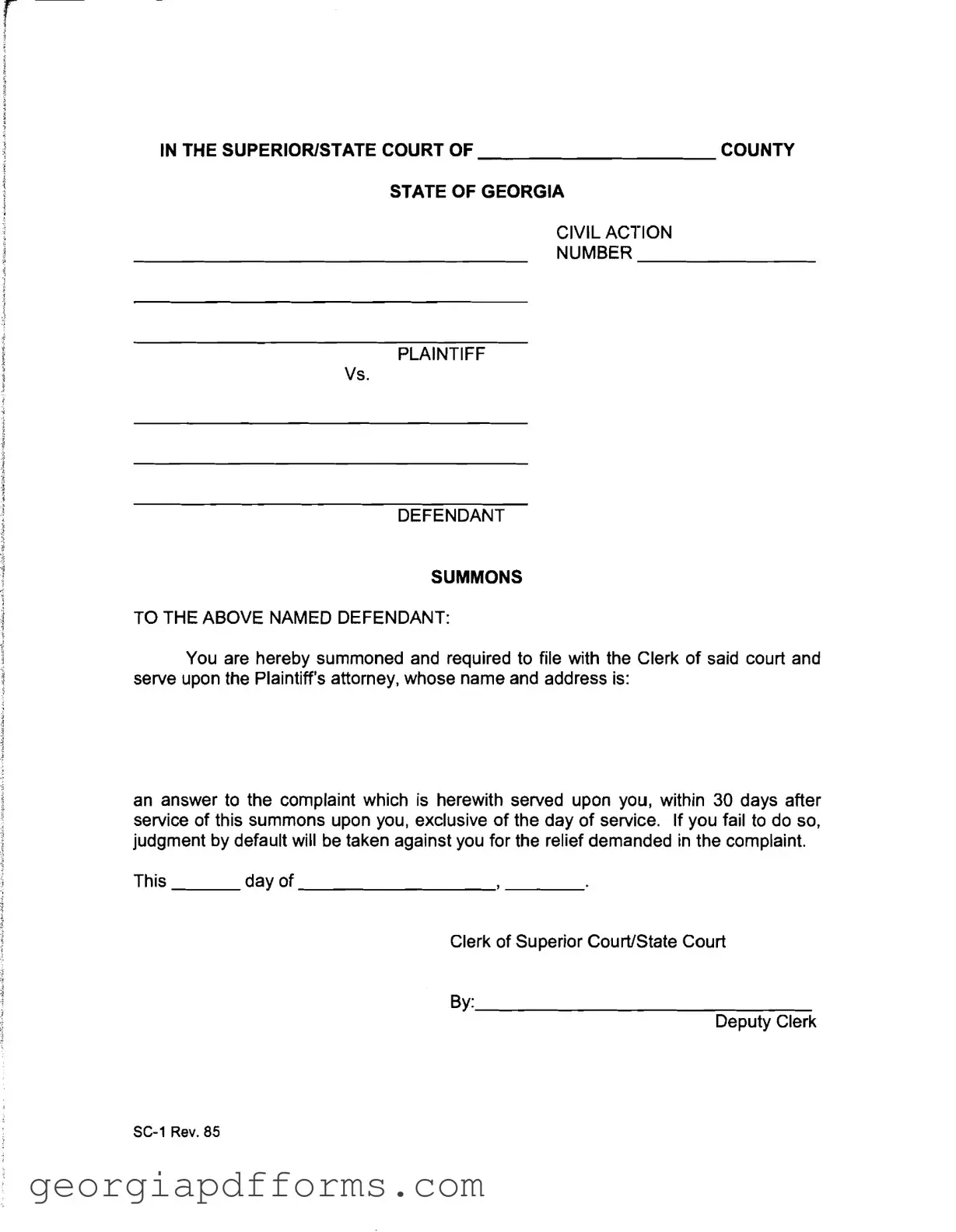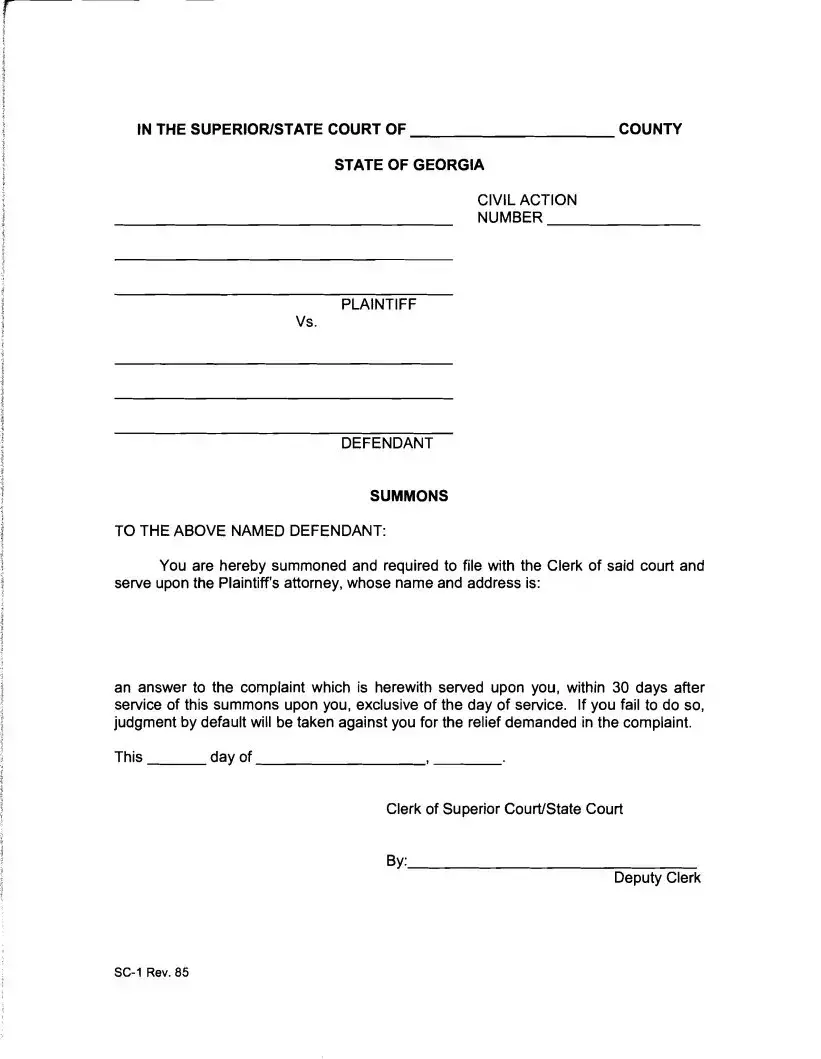Fill a Valid Georgia Civil Summons Template
The Georgia Civil Summons form is an official document that notifies a defendant about a legal action being taken against them in a Georgia court. It requires the defendant to respond to a complaint within a specified timeframe, typically 30 days, or risk a default judgment. Understanding this form is crucial for anyone involved in a civil case, as it outlines the necessary steps to ensure their rights are protected.
Access Editor Now

Fill a Valid Georgia Civil Summons Template
Access Editor Now
Almost there — finish the form
Fill and complete Georgia Civil Summons online fast.
Access Editor Now
or
Free PDF File

